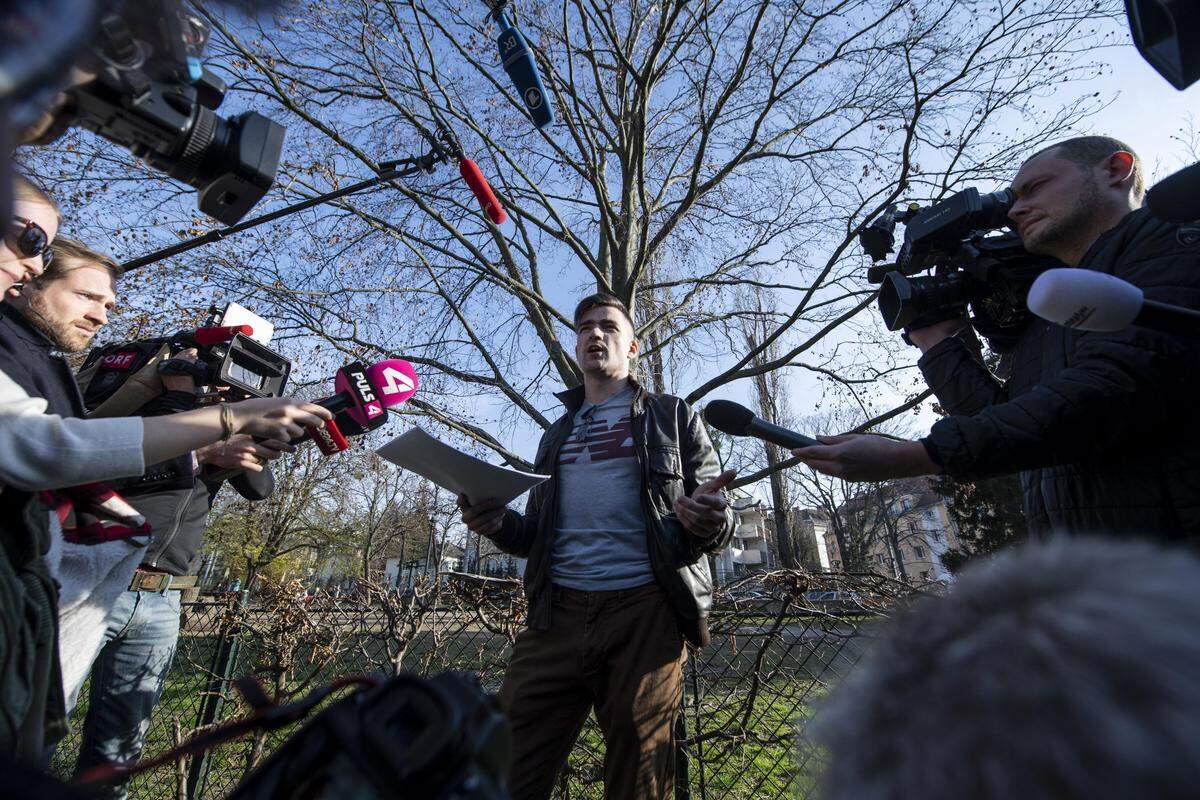
Austria's former Identitarian leader Martin Zellner put the entry ban “to the test”. The German police allowed him to go near Passau.
Martin Zellner, the former leader of the far-right extremist identity movement in Austria, entered Germany on Monday evening following reports that he may face an entry ban. According to the “Passauer Neue Presse” (online version), Sellner arrived at the Passau border crossing around 6pm in a black mini and was searched by authorities. By 6:45pm it was clear: the seller would be allowed to enter the country.
Over the weekend “Spiegel” made an entry for Sellner in the German Federal Police's internal searchable database, with reference to security sources. During a check, the police can stop you from crossing the Austrian border. The background was a controversial conference of right-wing extremists in Potsdam, where the activist gave a lecture on “immigration”. Passau immigration officials were said Sunday to be investigating the possibility of banning Sellner from entering the country. A threat to security and public order will be assessed in coordination with German security authorities.
Announced on social media
“Bavarian Plum Truffles” or “Petites Fours Cherry Blossoms” are available at Café Grind in Widkass, Pasha. Martin Zellner previously said in a video that he would choose a classic: Kugelhupf. On Monday evening, the 35-year-old right-wing extremist wanted to come to the German section of the hostel. But he did not travel because of sweets. Zellner, for his part, announced on social media on Sunday that he would go to Basa and, if necessary, allow himself to be deported across the German-Austrian border. He documented his trip on Monday through a live channel on Telegram titled “My Escape to Germany.” In the video, the 35-year-old said he was not sure if there was actually an entry ban. “We're putting it to the test.” He was excited to see what would happen: “The first pushback from Bassa and proof that you can secure a border if you want. Or despite the big noise and theatrics, the entry was uncomplicated.
Then the German Federal Police officers in Basa searched the cars from Austria. Police Chief Inspector Jürgen Bokstedt told Bayern's media team that they are investigating whether Martin Sellner poses a threat to public safety and order. The decision on whether he was allowed to enter rested with the Federal Police in Potsdam. Bockstedt: “We have questioned his reasons for entering the country and we have found no reason why he is a threat to public safety and order – that is why he was allowed to enter the country.”

Archive image of Martin Sellner from 2019. Newspaper
Sellner enthused: “The welcome culture in Passau was overwhelming.” According to “Passauer Neue Presse”, there was great media interest in the border. Camera crews were also on site. A Passau innkeeper, who said he wanted to eat a seller's cake, reacted by closing his cafe on Monday. The restaurant now struggles with hateful comments, the newspaper reported.
Protests and excitement at right-wing gatherings
Until 2023, Selner was the spokesperson for the Austrian Identity Movement (IBÖ), which was classified as right-wing extremist. In January, the research site Corrective publicized a meeting of the far-right in Potsdam on November 25, which was attended by some German politicians. Selner said he talked about “immigration” at the meeting. When right-wing extremists use the term, they usually mean that foreign nationals should leave the country in large numbers – even if forced.
The meeting sparked protests in Germany and Austria. In Germany, hundreds of thousands of people have been taking to the streets for weeks against right-wing extremism. Austria saw its first anti-rightist protests last Friday. At least 80,000 people gathered in front of the parliament in Vienna despite the rain in a widely supported mass rally “to defend democracy,” according to organizers. According to the police, there were up to 35,000 people. Protests also took place in Innsbruck and Salzburg. (APA)